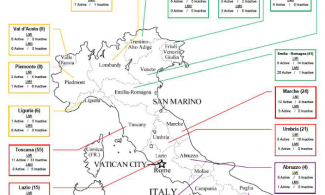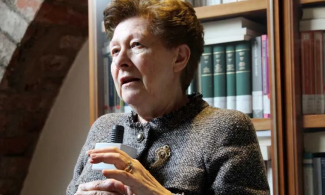Dr. Alberto Corbino is a human geographer, born and raised in the South of Italy, a beautiful but complicated place. He is currently teaching Economics of Organized Crime and Social Innovation at Arcadia University Centre for Italian Studies in Rome. In the last two years he has worked as part-time professor in Environmental economics and law at University of Naples - Federico II. For some 20 years, as a professional and a community builder, he has been working to understand how the theories of sustainable development could be turned into practices, thus becoming an expert on the co-existence of legitimate and illegitimate systems of government and economies. He transformed this experience into training processes for students of any grade, a job he loves: in his vision, learning and understanding are essential to change.
In 2004 Dr. Corbino completed an executive program in Innovation in Governance at Kennedy School of Government, Harvard University, MA; in 2000 he received a Ph.d from the University of Padua and in 1992 he graduated with honors in Political Sciences at University of Naples – Federico II. In 1998 he worked as national expert at the European Commission in Bruxelles as coordinator of IMPEL - European Network for the Implementation and Enforcement of Environmental Law.
In 1999 he co-funded the Campania regional branch of the NGO Mani Tese (fighting the imbalances between North and South of the world); he currently manages the non-profit organization Il Vagabondo (The tramp) to promote responsible tourism in the South of Italy. He volunteers for Banca Popolare Etica to make the social assessments of projects.
Contact him at: corbinoa [at] arcadia.edu; albertocorbino [at] gmail.com; skype: labuonaeconomia
blog: http://labuonaeconomia.wordpress.com (In Italian)






 The first in a new series from the makers of SHIFT CHANGE, WEconomics: Italy reports on the extensive and innovative cooperative economy in the region around Bologna.
The first in a new series from the makers of SHIFT CHANGE, WEconomics: Italy reports on the extensive and innovative cooperative economy in the region around Bologna.



